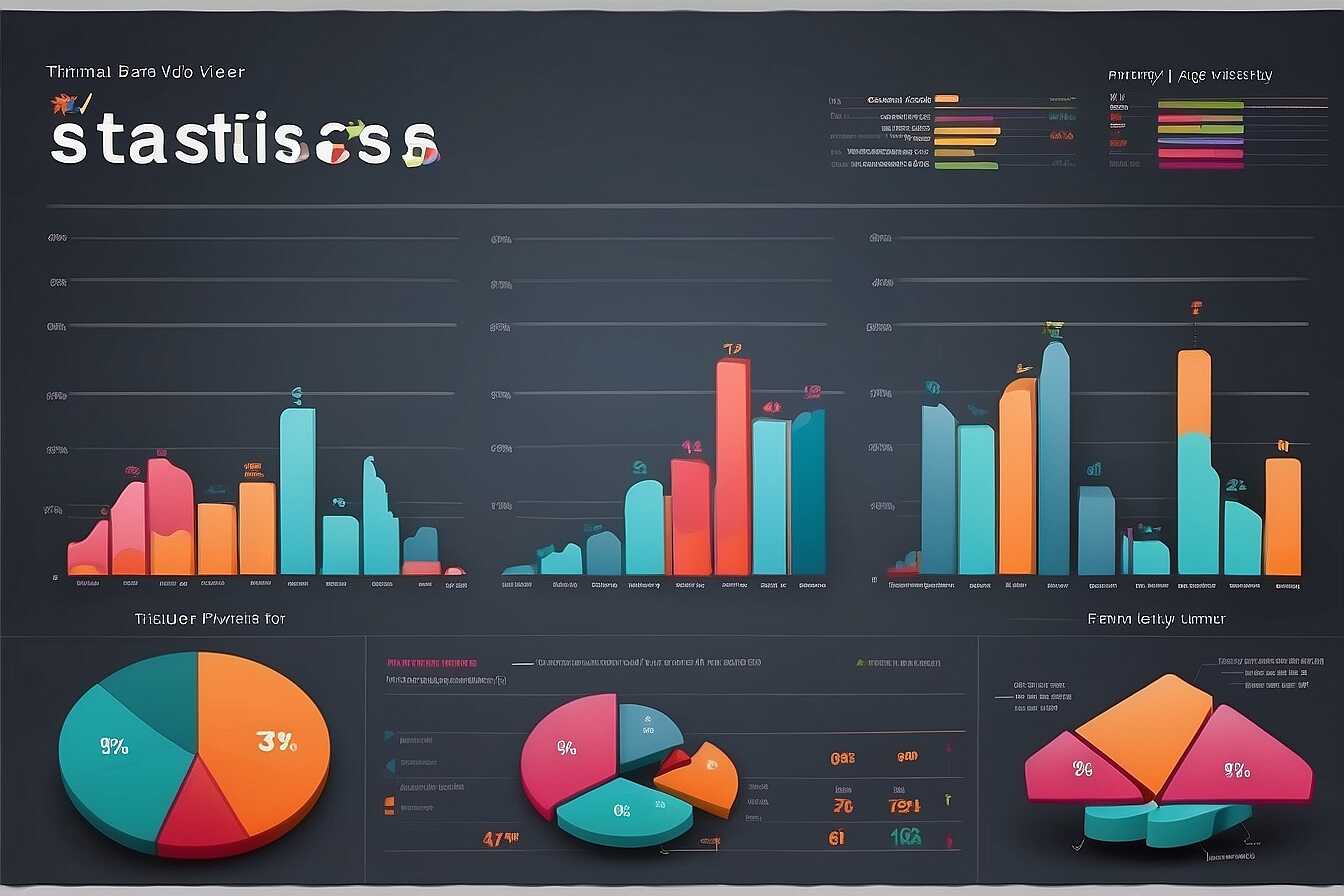Vancouver multi-location businesses face unique SEO crawling challenges that can hinder their online visibility. Understanding these obstacles is crucial for improving search engine rankings and attracting local customers. At Metrics Rule, we specialize in technical SEO, equipping businesses with actionable strategies to overcome these hurdles effectively. By addressing crawling issues, you can enhance your online presence and drive customer engagement across all your locations.
The Role of Effective SEO in Multi-Location Businesses
Effective SEO is essential for multi-location businesses because it enhances online visibility across different regions. The key benefits include increased website traffic, better local search rankings, and improved customer trust. By understanding local search optimization, businesses can align their content with consumer behavior, ensuring they attract more relevant traffic. Research shows that approximately 80% of consumers rely on online searches to find local businesses. This statistic highlights the vital role that effective SEO strategies play in reaching potential customers and converting them into loyal clients.
Understanding Local Search and Consumer Behavior
Local search optimization is crucial for businesses with multiple locations. Local search behavior frequently combines location-specific queries with familiar terms like “near me” or “in Vancouver.” By incorporating keywords relevant to each location, businesses improve their chances of appearing in local results. Moreover, consumer behavior studies reveal that local searches often lead to action, with over 70% of mobile searchers contacting a business directly after searching. Hence, employing effective SEO strategies tailored to local audience preferences can significantly enhance engagement and performance for multi-location entities.
Identifying Common Crawling Problems in Multi-Location Sites
Businesses with multiple locations often face specific crawling challenges that can hinder their online visibility. Common issues include duplicate content issues, where similar or identical information appears across various location pages. This can confuse search engines, leading to poor indexing. Additionally, a faulty site structure optimization can complicate how search engines crawl the website, making it difficult to access all pages efficiently. Localized SEO strategies are crucial as failure to implement them properly means search engines may struggle to distinguish between different locations, affecting overall search performance. Research indicates that up to 30% of websites encounter indexing challenges due to these factors, which underscores the importance of addressing these issues head-on.
Importance of Site Structure for Crawling Efficiency
Having a well-organized site structure is vital for the crawling efficiency of multi-location businesses. A logical hierarchy helps search engines navigate easily and understand content relationships. Implementing clear sitemaps and ensuring that each location page is linked effectively enhances crawl budget management. Simplifying page URLs and optimizing metadata like title tags and descriptions can further improve crawling performance. Regularly testing your site with tools like Google Search Console can reveal how effectively search engines access your pages. This ongoing monitoring can significantly enhance the reliability of your local SEO efforts and provides valuable insights for strategic adjustments.

Best Practices for Optimizing Website Structure
To enhance crawling efficiency, the key elements of an optimized website structure include a logical hierarchy, intuitive navigation, and an effective sitemap. A logical hierarchy ensures that important pages are prioritized, allowing search engines to understand content relevance. Intuitive navigation aids both users and crawlers in finding information quickly. By utilizing a well-structured sitemap, multi-location businesses can specify which locations and services they cover. In Vancouver, local SEO strategies become increasingly important, as they improve visibility in searches tailored to users’ geographic locations. Additionally, managing multiple location pages through a consistent URL structure is essential for avoiding duplicate content issues.
Implementing Effective Sitemap Management
Effective sitemap management is crucial for optimizing crawling efficiency. By regularly updating your sitemap to include all relevant local pages and sections, you can ensure that search engines, like Google and Bing, index new content promptly. This practice not only supports quick crawling and indexing but also reduces the chances of important pages being missed. Use tools like Google Search Console to validate your sitemap and track indexing status. A well-maintained sitemap, featuring your multi-location services in a clear format, enhances users’ experience and drives efficient traffic, thereby improving overall search engine rankings in competitive markets.
Key Statistics About SEO Issues for Local Businesses
- 73% of users never scroll past the first page of search results.
- 46% of all Google searches have local intent.
- 24% of local searches lead to a purchase within a day.
- 53% of mobile users abandon sites that take over 3 seconds to load.
- 38% of consumers will stop engaging if content is unattractive.
- 65% of marketers state that improving SEO is a priority this year.
- 82% of consumers trust search engine results more than ads.

Creating Unique Content for Each Location
Creating unique, location-specific content is essential because it improves search visibility and helps search engines distinguish between your various business locations. Unique content showcases local relevance, enhances user engagement, and ensures that your business appears prominently in local search results on platforms like Google. By providing tailored information about each location, including its offerings, community involvement, and local keywords, you enhance the user experience and increase the likelihood of conversions. Businesses should focus on including at least 300-500 words per location to align with SEO best practices, ensuring they deliver valuable and relevant information to potential customers.
Examples of Effective Location-Specific Content Strategies
Effective location-specific content strategies include creating dedicated web pages for each business location, using localized keywords in blog articles, and sharing unique stories about each location’s history or community events. Additionally, businesses can enhance SEO by developing specific landing pages featuring local services, customer reviews, and location-based FAQs. Incorporating locally relevant media like images and videos can further improve engagement and attract local search traffic. By combining these strategies, businesses can significantly boost their online presence and rank better in local search results.

Understanding the Challenges of Duplicate Content
Duplicate content refers to blocks of content that appear on multiple pages, either within the same site or across different sites. This can confuse search engines like Google and Bing, making it harder for them to determine the most relevant version to display in search results. For multi-location businesses, common causes include variation in location pages and replicated content across sites. The presence of duplicate content can significantly hinder SEO crawling and indexing, resulting in lowered rankings and poor visibility in local searches.
Best Practices to Resolve Duplicate Content Issues
To tackle duplicate content challenges effectively, multi-location businesses should implement several best practices. First, they should utilize unique landing pages for each location, ensuring specific content tailored to local audiences. Incorporating canonical tags is also essential, as these tags signal to search engines which version of the content is the preferred one for indexing. Additionally, local SEO strategies, such as including specific city names in page titles and descriptions, can enhance relevance and improve search visibility, effectively mitigating the adverse effects of duplicate content.
Advantages of Overcoming SEO Roadblocks for Businesses
- Enhancing online visibility helps attract more potential customers.
- Improving rankings in search engines boosts your brand’s credibility.
- Streamlined crawling increases the chances of your content being indexed.
- Better user experience increases customer satisfaction and retention.
- Challenges in indexing may lead to missed marketing opportunities.
- Effective strategies increase organic traffic and reduce ad spending.
- Learning from SEO obstacles allows for ongoing improvement and growth.

Enhancing Crawling Through Schema Markup Techniques
Schema markup is an essential tool for improving SEO crawling and indexing, especially for multi-location businesses. By implementing schema markup, you enable search engines like Google to better understand your site’s content, which can lead to more accurate indexing and improved rankings. Specifically, using local business schema helps search engines identify your different locations, ensuring that they provide relevant search results to users. Additionally, structured data for local listings enhances online visibility by displaying important information such as addresses, phone numbers, and working hours directly in search results.
Best Practices for Implementing Schema Markup
To effectively enhance your SEO with schema markup, start by incorporating the LocalBusiness schema for each location. This schema type provides structured data that includes essential details about your business services and locations. Ensure each page has unique schema that matches the location’s details, allowing for precise data indexing. Utilize Google’s Structured Data Testing Tool to review your markup for errors before deployment. Testing ensures that your markup functions correctly and delivers reliable performance in search results. Effective testing can reveal areas for improvement and enhance your site’s overall visibility in search engine results.
Importance of Sitemaps and Robots.txt in SEO Strategy
Sitemaps are vital for enhancing SEO for multi-location businesses, as they provide structured navigation to search engines. By including URLs for all relevant locations in a sitemap, businesses ensure that search engines can quickly access local pages. Robots.txt files complement this by guiding search engines on which pages to crawl or avoid. This helps in maintaining the indexation of key pages while keeping less important content out of search results. Properly implemented sitemaps and robots.txt files can influence around 35% of web traffic positively by improving crawling efficiency.
Optimizing Sitemaps and Robots.txt for Local Search Success
To optimize sitemaps and robots.txt files for local search success, businesses should prioritize updating these elements regularly. Sitemaps should include pages for each location, highlighting unique content tailored to local audiences. Use XML formatting for sitemaps, ensuring they meet search engine requirements for effective indexing. In the robots.txt file, specifically denote which directories contain valuable content for search engines to crawl and which should be excluded, enhancing the efficiency of crawling. Regular reviews of these elements allow businesses to make data-driven adjustments, improving overall visibility in local search results.
Relevant Brands and Their Focus Areas in SEO
- Yoast SEO offers strong plugins for WordPress, but can be complex for beginners.
- SEMrush provides comprehensive tools for keyword tracking and analysis, but costs can be high.
- Ahrefs excels in backlink analysis, yet its user interface may overwhelm newcomers.
- Google Search Console is free and essential for monitoring site performance but lacks in-depth analysis tools.
- Moz provides valuable resources and community support, but its data may lag behind competitors.
- HubSpot combines CRM and marketing tools, creating a holistic approach with a steep learning curve.
- Local businesses can greatly benefit from mobile optimization due to high local search rates.
Strategies for Ongoing Monitoring and SEO Performance Analysis
Ongoing SEO performance monitoring is essential for Vancouver multi-location businesses. By adopting best practices such as consistent keyword performance analysis, businesses can enhance their online visibility. Regularly reviewing data gathered from tools like Google Analytics allows businesses to spot issues early. Leveraging advanced tracking tools can provide a comprehensive view of SEO performance. Many SEO professionals assert that this continuous improvement cycle can yield better search engine results.
Essential Tools for Performance Monitoring
For effective SEO performance analysis, local Vancouver businesses should utilize several essential tools. Google Analytics and Google Search Console are excellent for tracking website traffic and user behavior. These platforms provide reliable data that enables businesses to understand how visitors interact with their sites. Additionally, using tools like SEMrush and Ahrefs helps monitor keyword rankings and backlinks. This combination of tools offers a powerful solution for ongoing SEO performance monitoring, enabling businesses to quickly adapt to changes in search engine algorithms.
